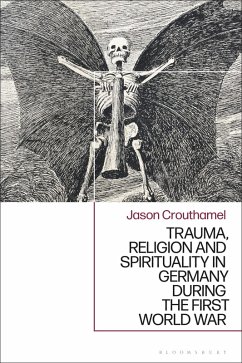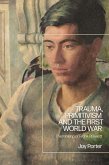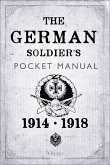This book explores the impact of violence on the religious beliefs of front soldiers and civilians in Germany during the First World War. The central argument is that religion was the main prism through which men and women in the Great War articulated and processed trauma. Inspired by trauma studies, the history of emotions, and the social and cultural history of religion, this book moves away from the history of clerical authorities and institutions at war and instead focuses on the history of religion and war 'from below.'
Jason Crouthamel provides a fascinating exploration into the language and belief systems used by ordinary people to explain the inexplicable. From Judeo-Christian traditions to popular beliefs and 'superstitions,' German soldiers and civilians depended on a malleable psychological toolbox that included a hybrid of ideas stitched together using prewar concepts mixed with images or experiences derived from the surreal environment of modern combat. Perhaps most interestingly, studying the front experience exposes not only lived religion, but also how religious beliefs are invented. Front soldiers in particular constructed new, subjective spiritual and religious concepts based on encounters with industrialized weapons, the sacred experience of comradeship, and immersion in mass death, which profoundly altered their sense of self and the supernatural. More than just a coping mechanism, religious language and beliefs enabled victims, and perpetrators, of violence to narrate concepts of psychological renewal and rebirth. In the wake of defeat and revolution, religious concepts shaped by the war experience also became a cornerstone of visions for radical political movements, including the National Socialists, to transform a shattered and embittered German nation.
Making use of letters between soldiers and civilians, diaries, memoirs and front newspapers, Trauma, Religion and Spirituality in Germany during the First World War offers a unique glimpse into the belief systems of men and women at a turning point in European history.
Jason Crouthamel provides a fascinating exploration into the language and belief systems used by ordinary people to explain the inexplicable. From Judeo-Christian traditions to popular beliefs and 'superstitions,' German soldiers and civilians depended on a malleable psychological toolbox that included a hybrid of ideas stitched together using prewar concepts mixed with images or experiences derived from the surreal environment of modern combat. Perhaps most interestingly, studying the front experience exposes not only lived religion, but also how religious beliefs are invented. Front soldiers in particular constructed new, subjective spiritual and religious concepts based on encounters with industrialized weapons, the sacred experience of comradeship, and immersion in mass death, which profoundly altered their sense of self and the supernatural. More than just a coping mechanism, religious language and beliefs enabled victims, and perpetrators, of violence to narrate concepts of psychological renewal and rebirth. In the wake of defeat and revolution, religious concepts shaped by the war experience also became a cornerstone of visions for radical political movements, including the National Socialists, to transform a shattered and embittered German nation.
Making use of letters between soldiers and civilians, diaries, memoirs and front newspapers, Trauma, Religion and Spirituality in Germany during the First World War offers a unique glimpse into the belief systems of men and women at a turning point in European history.









